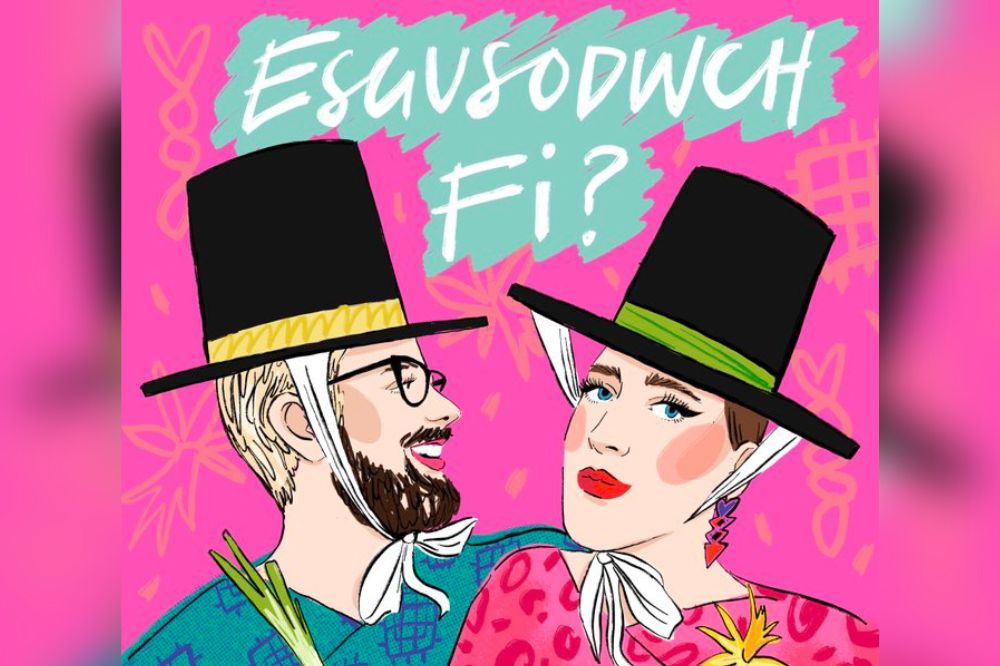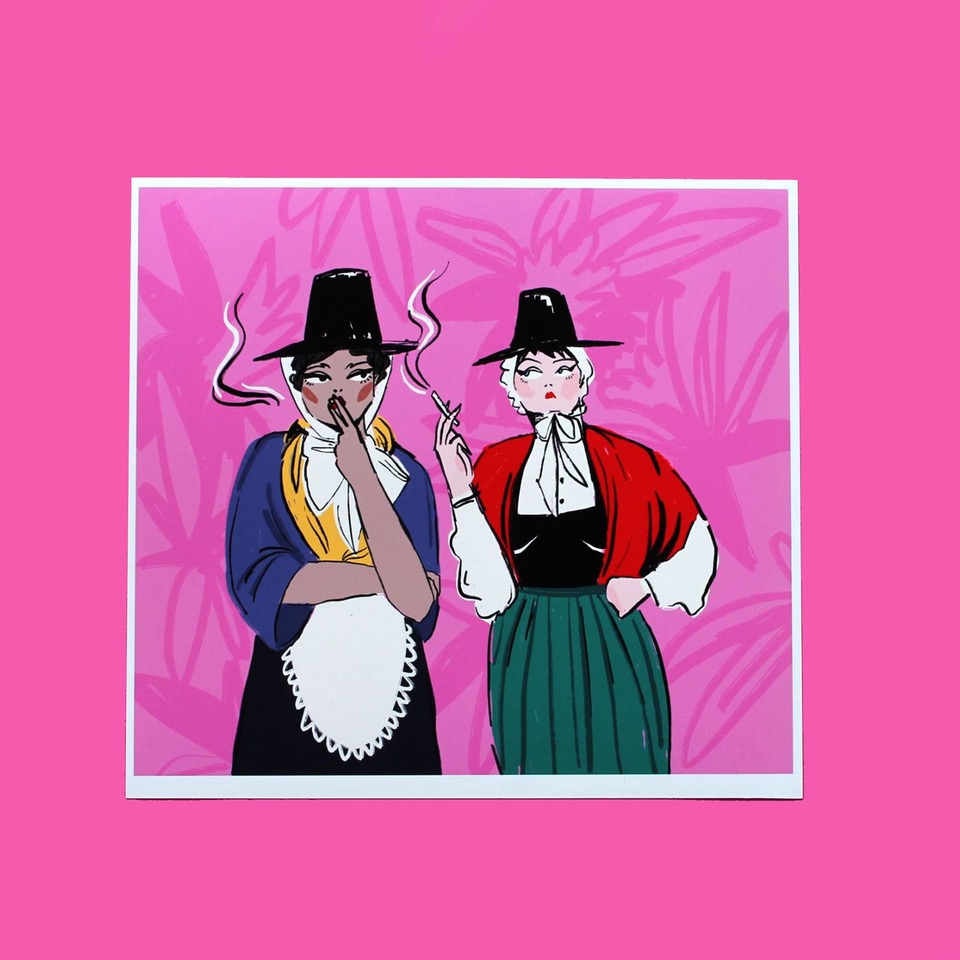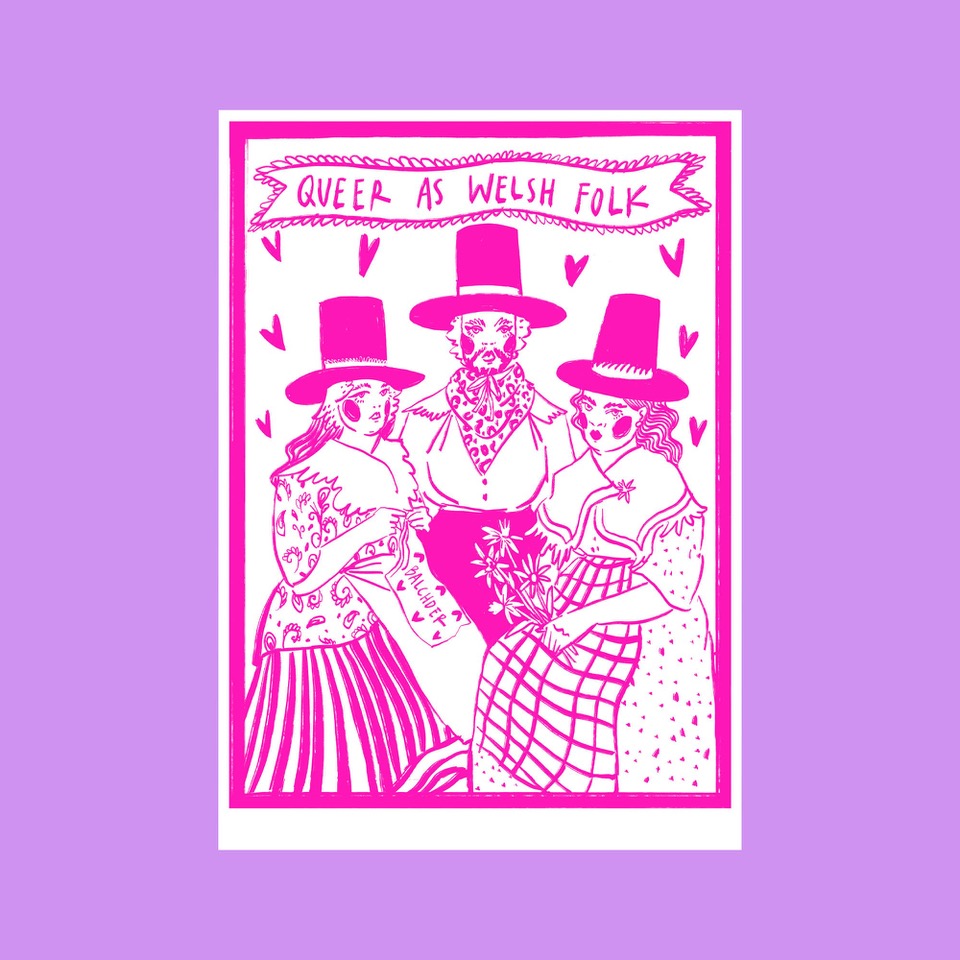Queer Pride in Wales and an era of misinformation

Stephen Price
Pride season is upon us again here in Wales, with events scheduled from now until September, the largest of which will be Pride Cymru which takes place at Cardiff Castle on 17th and 18th June.
And with Pride, just as with any event nowadays, comes the online social media educator, quick to share a pre-written meme or recycled fact to both impress and inform their followers. We all do it. We’re all a product of our times and our passions, and I’d like to think we act in good faith most of the time.
What any Facebook or Instagram post about Pride and wider LGBT+ issues won’t come with, however, is a Mark Zuckerberg authorised fact checking disclaimer should one be required. And there certainly won’t be an Elon Musk approved one on Twitter either.
Until recently, an innocent post with any vague link to Covid, for example, wouldn’t have been complete without a link to further guidance to counter any misinformation. Such posts even ran the risk of becoming censored completely by our omnipresent, omni-benevolent social media overlords to no doubt protect their backs and stock values during such unprecedented times.
Policing the internet is a near-impossible task, especially when truth itself is up for debate. It’s no surprise, then, that even in the most obviously contentious areas, false narratives and fake news abound freely and we’re all able to live in our own echo chambers should we wish.
Is it any wonder then, that less insidious and inflammatory ideas and half-truths flourish without anything approaching censorship or fact checking.

Furore
Take, for example, the online treatment of Kate Bush during Theresa May’s tenure, when her newfound fans decided that she was a Tory based upon an innocent remark made about having a female leader. Incorrectly assuming the bizarre furore would die down soon after, Kate eventually came out with a statement clearly and precisely stating that she is, unsurprisingly, not a Conservative voter.
Sadly for Kate, but also quite laughably, to this day, a constant stream of Tweets continue to dismiss her as a ‘massive Tory’ and this small example tells us something about where we are in the world today – debate and nuance are dead, and political leanings are only to be uttered aloud when they align with the most vocal audience. It also clearly, and most importantly, illustrates the way in which social media companies only care about some fake news some of the time.
Pride mythology, and with it the wider sphere of LGBT+ rights in general, is an area in which legend and misinformation run amok with complete and free abandon, and not always with the latest incarnation of the rainbow flag attached either which is, nowadays, a sin all of its own. And the sad thing about this is that these mythologies are quickly working their way into being recorded as actual fact.
Echoing typical social media posts about pride and LGBT+ rights in general, a written statement that formed part of a small town Pride display that shall remain nameless this time last year declared that the Stonewall riots which followed a raid on the Stonewall Inn in Lower Manhattan on 28th June 1969 are to be credited for gay and trans people having their rights today. That’s it. That’s fact now. Stonewall gave us our ‘rights’ whatever these might be.
Our histories have been hijacked and replaced by reductive American soundbites that have actually been contradicted by the very people who were there at Stonewall, and indeed those canonised yet completely reimagined pioneers themselves. And these mythical events leave no room for our own indisputable and tangible histories, despite playing only a small role in the complex and often slow-paced movement of LGBT+, rights here in Wales and the wider UK.
Of course, we certainly owe a great deal to the Stonewall riots for the hugely significant Pride events that have taken place ever since, but it is disingenuous to allow them to take the credit for the rights we currently have, in many cases already had, and are also yet to have.

Progress
Take the Sexual Offences Act (1967) for one very clear example. This groundbreaking Act of Parliament pre-dates Stonewall, and it most certainly didn’t just appear out thin air that same year either – a Welshman, Leo Abse, along with Lord Arran, pressured parliament and the Lords to debate a Sexual Offences Bill long before the Act’s incarnation.
Although this was far from the pinnacle of progress for us – it took until 2000 for the Sexual Offences (Amendment) Act to lower the age of consent for male homosexual activities for example, its significance is lost, along with its heroes, as it doesn’t have the punchiness required for an easy-to-digest meme. It’s not from the US either so, just like the histories and present day situations of every other country in the world, it’s just not Hollywood enough.
Wouldn’t it be refreshing and pride-inducing if we remembered our own pioneers, and at the very least talked about Welsh, and with it wider-UK, pivotal moments, abuses of power and victims of an outdated morality. A decolonisation of our own LGBT+ history is more than needed here in Wales, where we have a wealth of brave, beautiful and downright shocking tales that we dare not allow to be drowned out by louder voices.
Every single corner of Wales has its own forgotten stories to tell. The shocking ‘witch-hunt’ of gay men and cross dressers that took place in Abergavenny in 1942; the arrest of Cliff Gordon in 1954 for ‘attempting to procure another male person to commit an improper act’; the revolutionary life and works of Jan Morris; the tireless activism of Griffith Vaughan Williams and so on.
Perhaps these complex, nuanced, soundbite-resistant stories aren’t as social media friendly as the thrower of an imaginary first brick at Stonewall, or they hark back to fights that younger people today take for granted. But Pride offers us an opportunity to remind LGBT+ folk everywhere that things weren’t always as they are today, which is still far from perfect, and who knows how things will be tomorrow judging by the past few years.
Next generation
In the words of Lisa Power MBE, Pride Cymru Trustee Member, “The history of any community is incredibly important to its sense of self – and self-esteem. It’s also very useful for people in other countries and newer parts of the movement to learn from the gains and the mistakes of others who went before.”
I’ve passed the 40 year old mark now. The grandad on the dance floor who came from a generation where queer was a slur that feels at-best uncomfortable when co-opted by corporates and multinationals. Attending a valleys high school as a fragile ‘gay council-house boy’, to quote Adam Price, wasn’t a walk in the park, and I can only imagine how it was in the decades and centuries prior, so I have a vested interest in reminding the next generation that we put in the work here, all of us, and there’s much more work to be done.
Our forebearers weren’t only in Lower Manhattan in 1969. They were and are right here in Wales, and indeed the whole of the world, in every single community. And their overlooked stories of persecution, joy and progress are the ones that we all deserve to hear more of.
Support our Nation today
For the price of a cup of coffee a month you can help us create an independent, not-for-profit, national news service for the people of Wales, by the people of Wales.







How refreshing to read an article based around gay rights that isn’t terrible. As much as I’m sure their politics and ideology (and maybe even the finer points of the ‘history’/social narratives of gay people, as well as the status of basic terminology) probably don’t align perfectly with my own, it’s clear that the author is fully aware that the rights of gay people should align with natural, human rights. That they were ever excluded on the basis of sexual proclivity is something we should be glad has gone. The sheer amount of gay, lesbian, bisexual and trans(-sexual and -vestite,… Read more »
The only thing that unites hard right Israelis and Hamas are their feelings toward Gay Pride…crazy messed-up world !